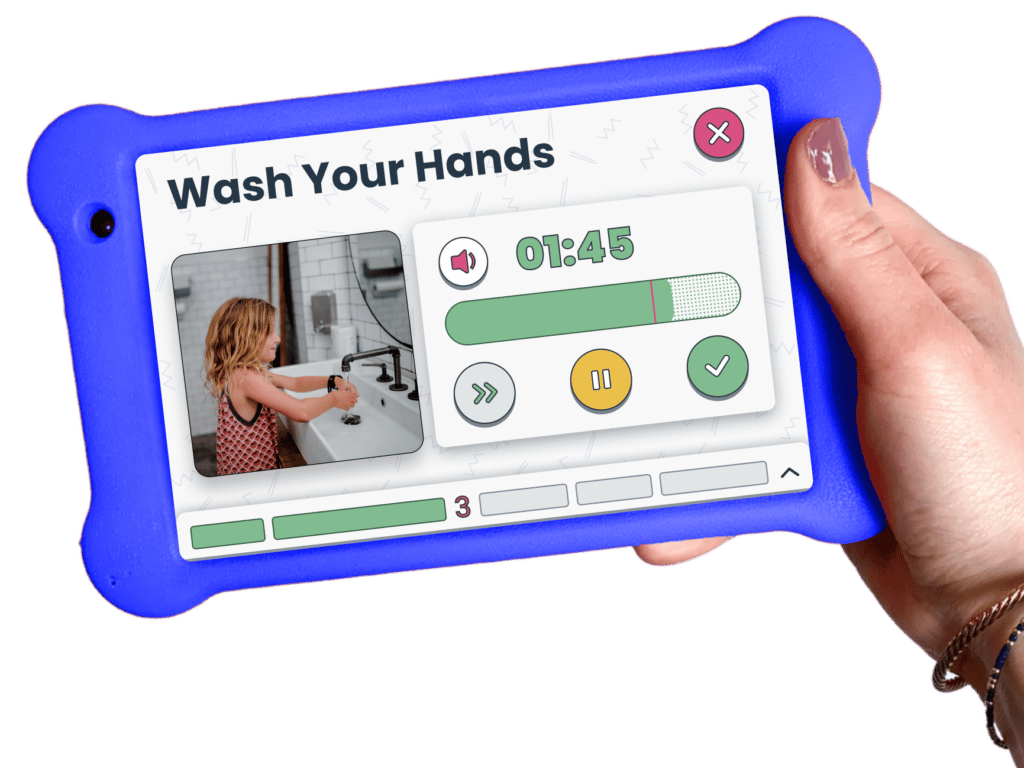Are you parenting a child with high functioning autism? Currently, there’s some debate over whether or not it’s appropriate to use the terms “high functioning” and “low functioning” to discuss types of autism. However, for the purpose of this article and enhancing understanding, we will be using this term. Children with this type of autism tend to show fewer obvious signs of autism. They’re often bright, social, resourceful, and communicative (though it may take time for them to get there).We’re here to offer a few parenting tips for raising your high-functioning child. Read on to learn more.
Table of Contents
1. Use Technology!
Using technology for a high-functioning autism and emotions can have several benefits and can be a good thing for their development and well-being. Here are some reasons why technology can offer a safe and controlled environment for practicing social skills. Social skills training programs and apps (like Goally) can provide interactive scenarios, virtual social interactions, and social stories that help children with autism learn and practice appropriate social behaviors, turn-taking, and understanding social cues.
Technology can provide visual schedules, timers, and reminders that assist them in understanding and following daily routines and transitions, reducing anxiety and enhancing their independence. Many children with autism are attracted to technology and find it inherently motivating. Utilizing technology in their educational and therapeutic activities can increase their engagement, focus, and motivation to participate actively in learning and skill-building exercises.

Read More: Our Favorite Apps for Autistic Kids
2. Praise and Reward Achievements
All children (and teenagers, and even adults!) respond well to positive reinforcement and rewards. Remember that while your child may be “high functioning” and able to complete complex tasks, that doesn’t mean that you shouldn’t continue rewarding them for their efforts.
Keep track of your child’s changes and progress. When they’re able to do something new, even if it’s small, let them know how proud you are!
You can use a tool like Goally to track your child’s behavior and routine. When they’re able to complete new tasks, or complete them more quickly, you can give your child points.

Those points can turn into real-world rewards for your child. Whether the reward is money, a toy, a trip, or anything else that your child may want, it will make a huge difference in your child’s motivation and ability to complete these tasks in the future.
3. Ask for Help
Parenting a child with high-functioning autism can feel daunting, but remember, you’re not alone. Lean on your personal network, or your “village,” made up of friends and family. Their unique talents and interests could be an asset in engaging your child and introducing them to new experiences. Think of Uncle Joe’s knack for painting or Cousin Ava’s passion for piano – sharing these skills with your kid can be a fun and exciting experience for both sides.
Moreover, if your village includes other kids, they can play an invaluable role too. Encouraging your child to form friendships with other children can be a fantastic way to enhance their social skills. After all, every opportunity for interaction adds to their social toolbox, a key aspect in managing high-functioning autism. Making parenting a team effort eases your load and enriches your child’s world.
Read More: 5 Ways to Manage Autism and Stress
4. Focus on Your Child’s Abilities and Interests
It’s easy to pay too much attention to the things that your child isn’t able to do. While it’s important to keep those things in mind (more on that later), your primary focus should be on what your child can do.
Children with autism often have “special interests.” These are things that the child can and will hyper-fixate on when given the opportunity to do so. Instead of discouraging this fixation, make it into a healthy way to express an interest.
Does your child love comics? This could turn into a fascination with art and drawing. A child who loves music may turn into someone who can pick up any instrument and learn it right away.
If you’re looking for new ways to engage your child or help them with tasks, use their interests as a motivation. Whether you reward them with new interest-related gifts or you somehow incorporate their interests into the task at hand, it will make a big difference!
Always leave room in your child’s schedule for them to define and follow their interests and abilities.
5. Remember Your Child’s Autism Diagnosis
- Your child with high functioning autism may excel in various aspects of life, be it doing well in school, navigating social circles, or sometimes giving the impression they’re not on the spectrum at all.
- This doesn’t indicate their autism diagnosis has disappeared; rather, it shows they’ve developed effective strategies to manage it, which is a positive step forward.
- Remember, like all children, those with high functioning autism will encounter challenges. They might have occasional outbursts, struggle with specific skills, and face other difficulties.
- When such instances occur, instead of viewing them as setbacks, understand that your child is dealing with an extra hurdle. Not every leap will be perfect, and sometimes they may stumble over this hurdle. And that’s okay.
6. Use Your Resources

Read more: How to Improve Executive Function: The Ultimate Guide
When it comes to parenting a child on the autism spectrum, it’s important to know that there are many resources available to you. Don’t be afraid to seek them out and take advantage of them!
One helpful resource is support groups. These groups are made up of other parents who are also raising children on the autism spectrum. They can provide you with a sense of community and understanding, and hearing about other people’s experiences can be invaluable.
7. Work Together With Your Child
If your child is high functioning, you can give them more autonomy. Work together with your child to establish a helpful routine, find the right coping skills, pick the right rewards, and more.
Your child deserves to have a say in their life. They’re more capable than you think, so embrace that.
Goally | Routines that Actually Work
Goally’s skill building tablet for kids has routines that break down large tasks into small, achievable steps. It helps kids complete their tasks independently!

Create custom routines with your own videos & pictures for every step. The steps come in small, bite-sized pieces to help your child learn the little fundamentals (like putting the toothpaste on their toothbrush!) to achieve bigger goals. And that’s just the beginning. See it in action:
Parenting a Child With High Functioning Autism: Are You Ready?
If you’re parenting a child with high functioning autism, you might feel worried, even if you have other children in your household. Remember that your child is special, but that they’re also like other children. They want to learn and play and try new things, and you’re there to help them grow. With enough attention and care, your child will thrive.
FAQs About Parenting a Child With High Functioning Autism
What is high functioning autism? High functioning autism refers to individuals on the autism spectrum who have average or above-average intelligence and language development, but may still experience challenges with social communication and interaction.
What are some common challenges parents face when raising a child with high functioning autism? Some common challenges include difficulties with socializing, communication, sensory sensitivities, and emotional regulation. Children with high functioning autism may also struggle with anxiety and executive functioning.
How can parents support their child with high functioning autism at home? Parents can support their child with high functioning autism by creating a predictable and structured routine, providing opportunities for socialization and play, using positive reinforcement, and working with their child's therapist to develop strategies for addressing challenging behaviors.
What resources are available for parents of children with high functioning autism? There are many resources available, such as support groups for parents, occupational therapy, speech therapy, and applied behavior analysis (ABA) therapy. Additionally, there are many online resources and books that can provide information and guidance for parents.
Can children with high functioning autism attend regular schools? Yes, many children with high functioning autism attend regular schools with accommodations and support. It is important for parents to work with their child's school to create an Individualized Education Plan (IEP) that meets their child's specific needs.
This post was originally published on 02/24/2022. It was updated on 10/25/2023.

Goally
We help parents teach their kids life skills, like doing bedtime and morning independently. Backed by science, we incorporate evidence-based practices and expert-informed designs in all of our apps and content.






